Studying Japan: The impact of transnationalization and technological innovation on methods, fieldwork and research ethics Freie Universität Berlin, July 23 and 24, 2019
The international conference “Studying Japan” took place at Freie Universität Berlin on July 23 and 24, 2019. It was kindly funded by the German Research Foundation (DFG), the German Institute for Japanese Studies (DIJ), Ernst-Reuter-Gesellschaft (ERG) and Freie Universität Berlin. Organizers Cornelia Reiher (FU Berlin) and Nora Kottmann (DIJ Tokyo) welcomed an interdisciplinary group of Japan scholars to discuss methodological trends in times of transnationalization and technological innovations and to talk about ways to make methods education more accessible for students and junior researchers. The conference consisted of five panels that encompassed the whole research process from finding a research topic to publishing one’s results.
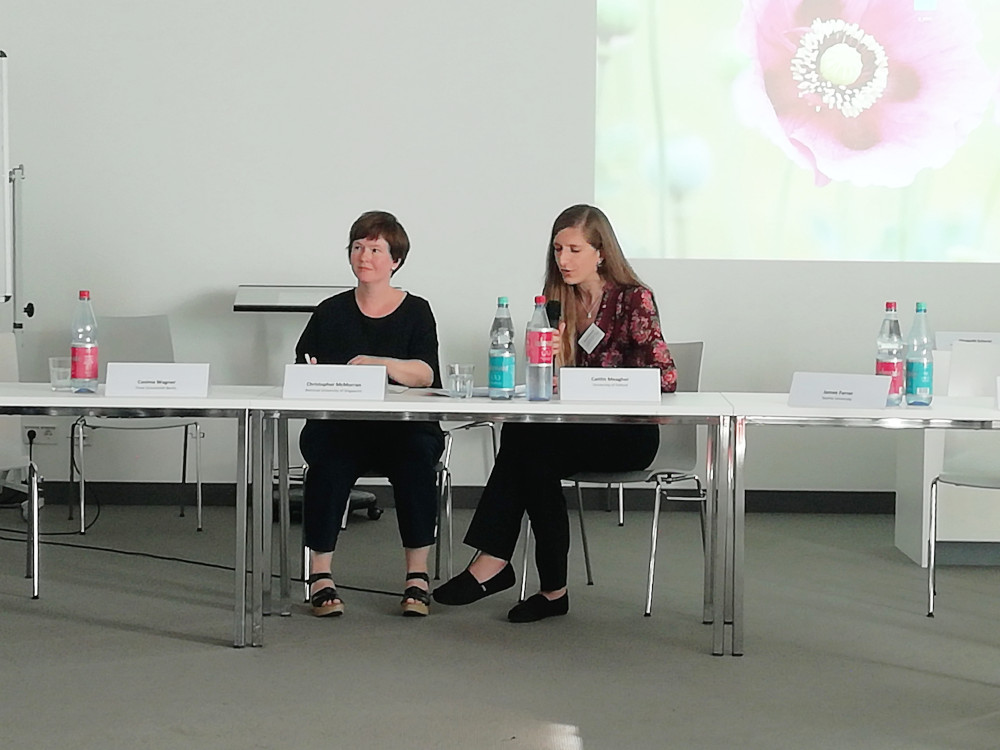
The first panel, chaired by Cosima Wagner (FU Berlin), opened the conference with keynote speeches by Levi McLaughlin (North Carolina State U) and Akiko Yoshida (U of Wisconsin-Whitewater) on methods in area studies. McLaughlin discussed how to navigate vulnerabilities of researchers and research partners during the research process. Yoshida introduced the audience to several methods to get interview partners to talk about themselves. They both emphasized the important topic of new technologies and their role in fieldwork and showed how social media is linked to vulnerability by bringing fieldwork to the home of researchers. Verena Blechinger-Talcott (FU Berlin) chaired the following roundtable discussion about new trends and challenges in research on Japan and its implications for methodology. The panelists shared their experiences from research in Japan and particularly highlighted the significance of the researcher’s relationship with research partners in the field and research ethics. While Joy Hendry (Oxford Brookes U) addressed her position as an anthropologist without prior methodological training, Karen Shire (U of Duisburg-Essen) reflected on the systematization of methodologies and stressed the need for mutual discussion between Japanese and western scholars. Chris McMorran’s (NUS) criticized the western-centric view on Japanese studies and emphasized the role of interpersonal relations in the field. Celia Spoden (Hannover Medical School) added the importance of the researcher’s self-identity as well as their positionality during fieldwork and Marie Weishaupt (FU Berlin) reflected on the role of social media in this context.
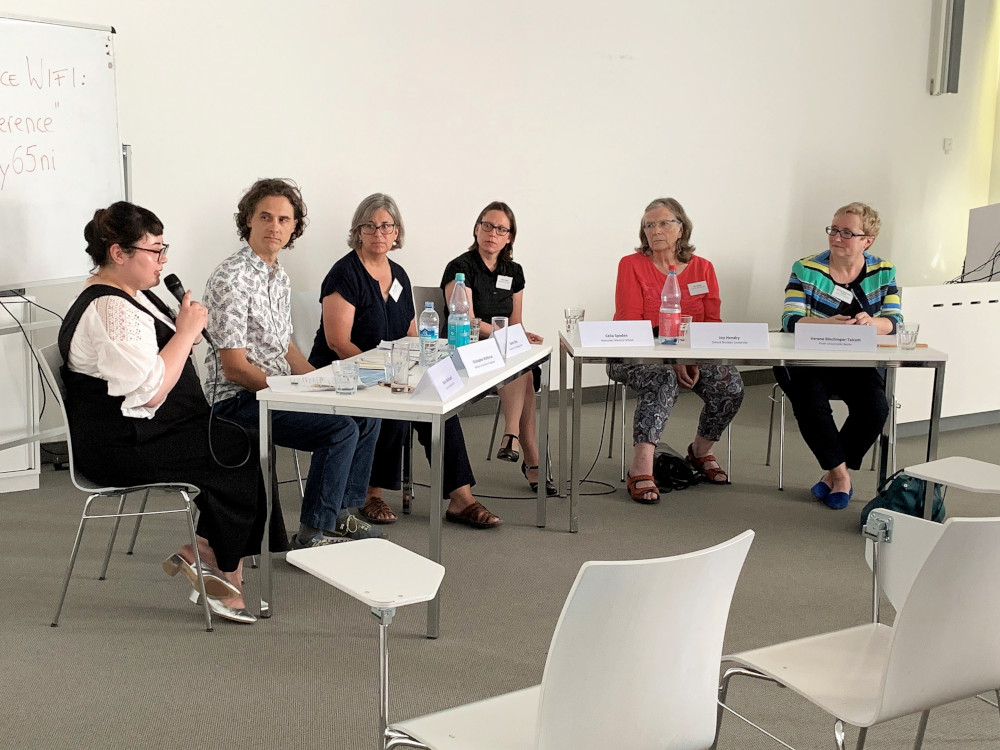
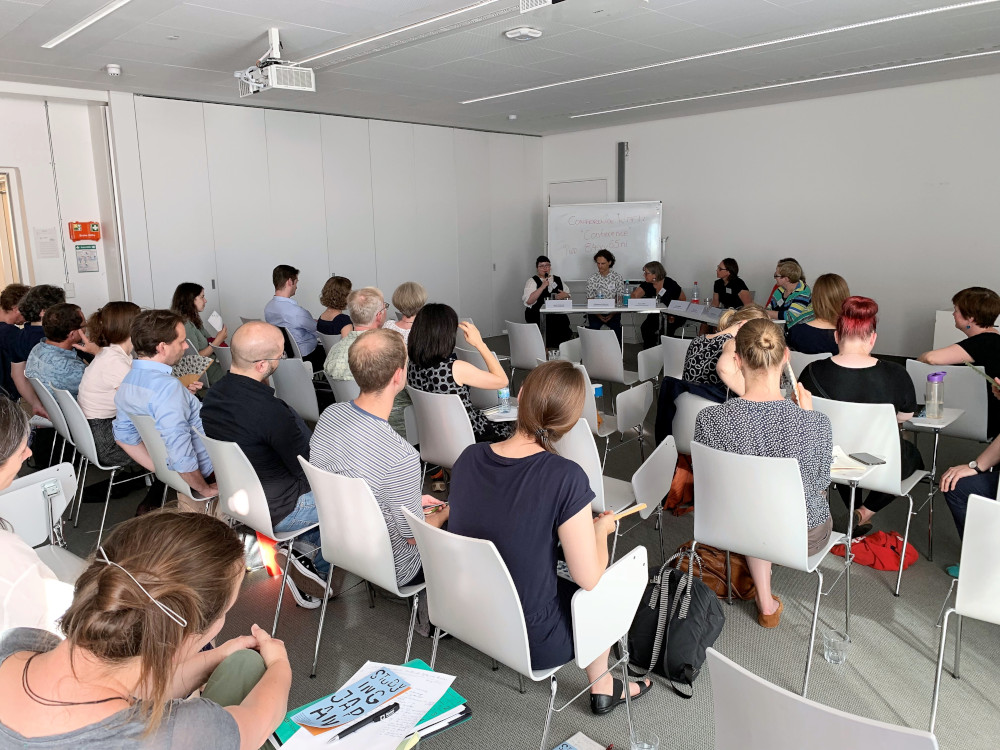
The second day kicked off with a panel chaired by Annette Schad-Seifert (HHU Düsseldorf), which started with Roger Goodman (U of Oxford) speaking about the diversity of Japanese studies and the process of identifying a research topic. Kaori Okano (La Trobe U) presented different research designs with a focus on case studies and Urs Matthias Zachmann (FU Berlin) outlined the topic of finding and reviewing literature for the literature review. Levi McLaughlin talked about how to do fieldwork in Japan, focusing on building and maintaining social relations and the importance of a digital presence. Kai Schulze (FU Berlin) presented the next panel on collecting data in social science research on Japan. Akiko Yoshida first provided an outline of qualitative social science methods and highlighted aspects such as the availability and acceptance of participants. Following this, Nora Kottmann and Cornelia Reiher discussed different approaches to qualitative interviews in research on Japan. In their presentation on participant observation, Christian Tagsold (HHU Düsseldorf) and Katrin Ullmann (U of Applied Sciences Düsseldorf) addressed the researcher’s positionality, the importance of research ethics and empathy. Theresia Peucker and Cosima Wagner (both FU Berlin) raised awareness for the impact of digitalization on archives, libraries, and databases on finding primary and secondary literature.
In the next panel, Japanese Studies students and doctoral researchers (FU Berlin) talked about their experiences with fieldwork in and on Japan and introduced their perspectives on methods education. They stressed the importance of keeping instructions simple and hands-on and suggested that senior researchers share their experiences and struggles with methodology as lessons for junior researchers. Following this, Hannes Mosler (FU Berlin) introduced the panel on analyzing qualitative data in social science research on Japan. Carola Hommerich (Hokkaido U) and Nora Kottmann presented three models of mixed methods designs, followed by an introduction to methods of and approaches to data analysis by David Chiavacci (U of Zürich). Celeste Arrington (George Washington U.) outlined the topic of qualitative content and frame analysis and Cornelia Reiher critically discussed qualitative discourse analysis. The last panel focused on ethics, theorizing and publishing was chaired by Elisabeth Scherer (HHU Düsseldorf). James Farrer (Sophia U) and Gracia Liu-Farrer (Waseda U) talked about writing for different audiences. Caitlin Meagher (U of Oxford) discussed coding and theorizing and Chris McMorran spoke about the challenges of writing and the importance of mental health management. Cornelia Reiher and Cosima Wagner introduced and focused on ethical research practices and the open science movement.
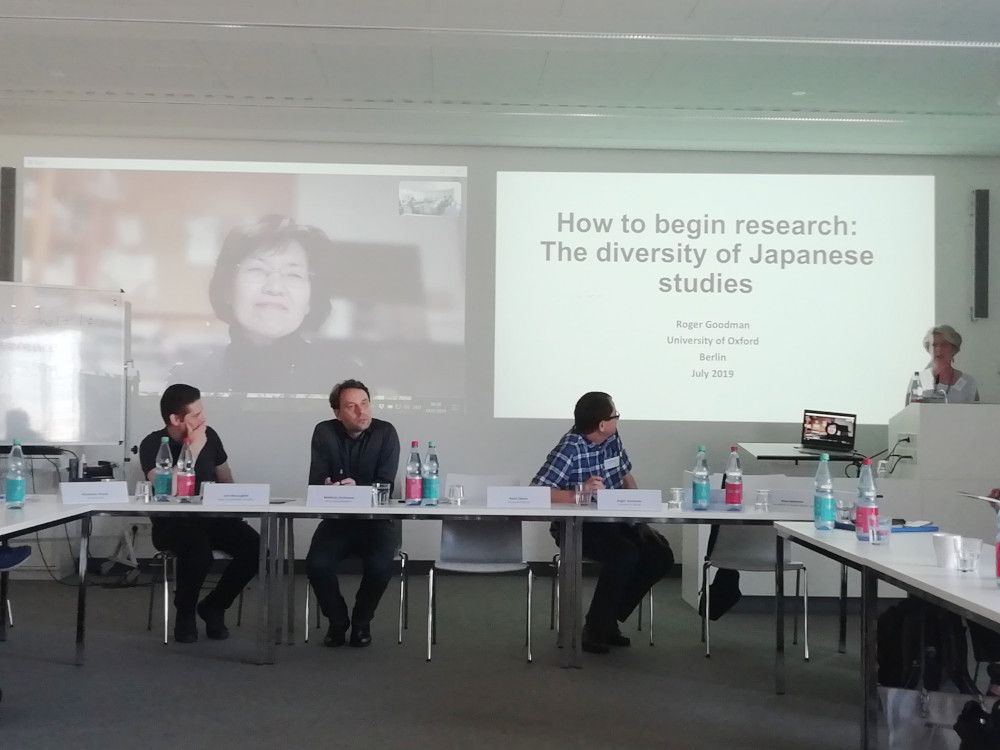
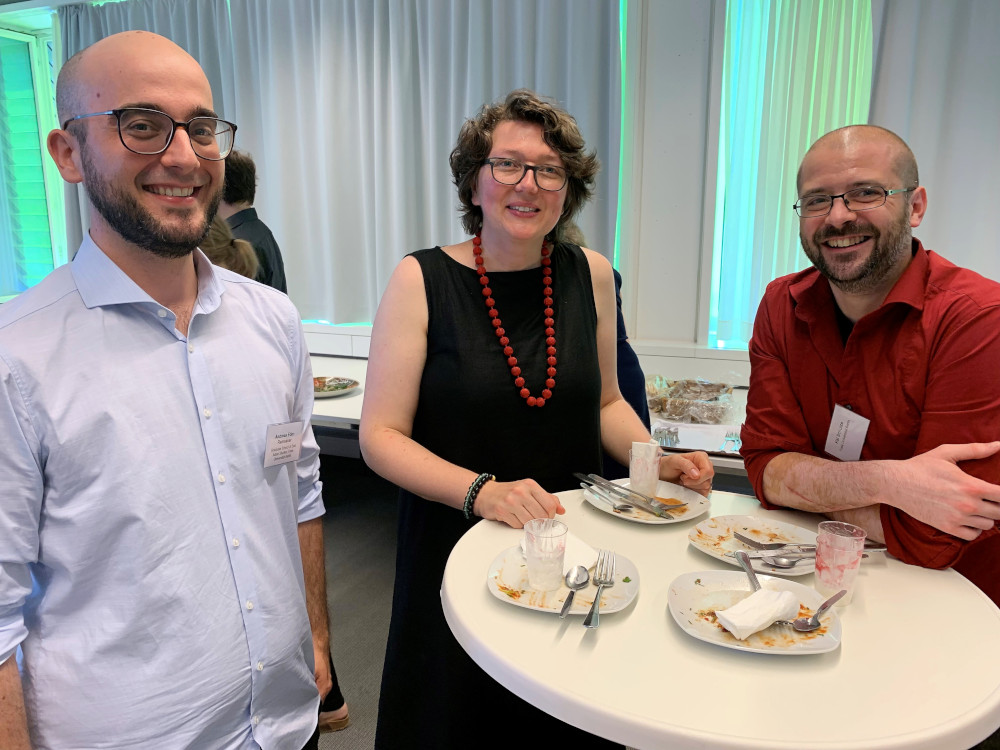
In a final wrap up, Nora Kottmann and Cornelia Reiher summarized the discussion and named relevant topics that require further elaboration like a researcher’s positionality, language issues, comparing Japan with other regions or countries, different audiences of academic work, reflexivity and the impact of social media on research on Japan. The two interesting days of the conference produced many new ideas the conference organizers will incorporate into the methods handbook Studying Japan: Research Designs, Fieldwork and Methods they are currently editing.
Report and pictures: Isabel Schreiber & Marie Ulrich (both HHU Düsseldorf)
